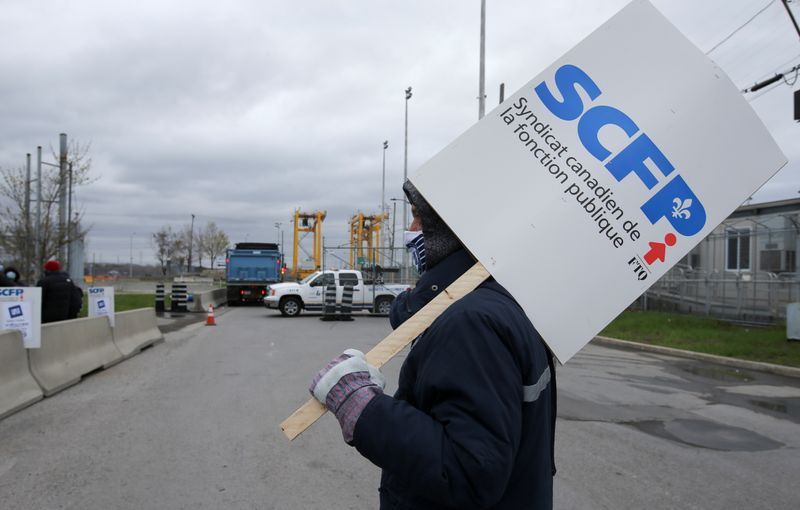OTTAWA (Reuters) -The Canadian government unveiled back-to-work legislation on Tuesday to end a strike at the Port of Montreal, and later received opposition support that should guarantee its passage.
The Liberal government said it was disappointed talks between unions and employers had broken down. Conservative Party leader Erin O'Toole said he would support the bill, which now may be voted on as early as Wednesday.
Prime Minister Justin Trudeau's minority government needs votes from at least one opposition party to pass legislation.
"We're going to take action, not to impose a contract on anyone, but to allow for neutral arbitration that will lead to a new agreement," Trudeau told lawmakers on Tuesday.
In a letter to Trudeau, the union representing the striking workers said the legislation would undermine the "fundamental rights" of its members and was "neither helpful nor necessary."
The Canadian Union of Public Employees Quebec's 1,125 longshore workers at the port, the second biggest in Canada, began their second strike in less than a year on Monday, demanding the Maritime Employers Association withdraw new work schedules they say are unfair.
Business leaders urged Ottawa to quickly end the walkout that is disrupting supply chains.
O'Toole blamed Trudeau for failing to head off the strike, but said the labor action threatened to further undermine the economy during the COVID-19 pandemic.
"Just last year, a 19-day stoppage at the Port of Montreal is estimated to have cost C$600 million ($484 million) dollars," O'Toole said in a statement.
Earlier, Labour Minister Filomena Tassi said the strike was causing significant and potentially long-lasting harm to Canada's economy and reputation.
"The port of Montreal is critical to the economic wellbeing of Canadians," she said in a statement.

Unionized workers have been in talks for a new contract since 2018.
($1 = 1.2397 Canadian dollars)